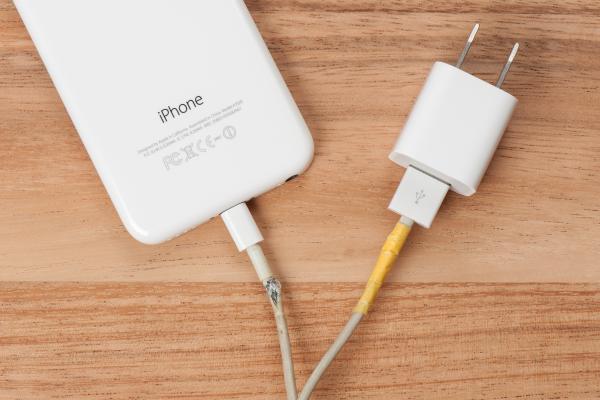“Which chapter has been the hardest to write?” My friend Kate asks as I whine express anxiety at the overwhelming task I had to write a chapter on racism in my Unfundamentalist Parenting book.
“All of them,” as I recall recently finishing my chapter on economic justice as it relates to children — how enormous the challenges we face in our global capitalistic world, how deeply entrenched the system was stacked against the poor, and how heavily our earth is suffering under the weight of our irreversible habits of modern life.
I’ve been a social justice-y Christian for a many years. It began with expanding my theology to include salvation for the poor, the oppressed, and the earth — working toward life before death instead of evangelizing for souls. My family joined the movement of One Days Wages in 2009 and has partnered in the fight against global poverty ever since.
READ: The Activist's Guide to Contemplation
At the first leg of this journey, I felt a responsibility to steward the privileges and resources that I was given to serve the poor. But the more I learned about development and the deeper I leaned into the complexities of poverty and other forms of oppression, the more my eyes became opened to how interconnected I was to the suffering of others. Justice for the poor is more than cutting a check; it means reexamining our own complicity in the systems of injustice. It’s about what water we drink, what clothing we buy, what cars we drive, how often we upgrade our devices, and where we source the foods that end up on our dinner table. It feels as though the more causes we are aware of, the more we feel helplessly caught in the web of injustice. The thought of the sweat of child labor woven into the shirts we put on our own children is heartbreaking.
As difficult as it has been to become aware of how we commit injustice and cause suffering, it has been just as difficult to peel back the layers of injustice done to me. James Baldwin observes:
“What the world does to you, if the world does it to you long enough and effectively enough, you begin to do to yourself. You become a collaborator, an accomplice of your own murderers, because you believe the same things they do.” I experience this as a woman of color, having deeply internalized a message of inferiority from the world. From mass media to my education to my parents—in almost every way the world has been set up to ensure I remember I am, and will never achieve the same status as white men. For a very long time I believed this truth as universal, and in this way I became a “collaborator of my own murder.”
Nobody wants to feel like a victim. I have long denied being a victim of systemic oppression. I am a strong, confident woman. Being made aware of harm done to me is humiliating. It is to accept that I fell hook, line, and sinker for an enormous lie.
And now I have two beautiful children and I am writing my truths in a book about parenting. There have been many painful moments. I wish I didn’t have to help my children confront the harsh truths I now know to be real — that as mixed-race children they will be identified racially in a hierarchy that unfortunately is set up against them. That already they have been told from their birth that the white blood in them makes them more beautiful, that their Asian peers’ smaller eyes are inferior, and that they have yet to see heroes/heroines who resemble their skin color represented in the many movies they love. These are not simply “micro”-aggressions — it is the systemic messaging to ensure the racial hierarchy remains intact.
Here’s a truth, in the words of Ursula Le Guin, “The mental and moral shift from denial of injustice to consciousness of injustice is often made at very high cost.”
But neutrality is no longer an option. Unless we fight for liberation, we risk becoming accomplices to the oppression of others and ourselves. Yet burnout and despair appear very likely consequences that engage in this fight for the long haul. I think there are three things that are important for those of us committed to the liberation work of the gospel to remember:
1. Tend to your hearts. I shared some of my struggles on Twitter recently, and my dear friend Brad Jersak sent me this healing balm for my soul:
“Christ gives you these tears and kisses their salty message from your cheeks.”
Surround yourselves with people who will care for your heart as you care for your own. Sustainability for justice work has to be rooted in love, a resource that expands and multiplies and never runs out.
2. Remember there is power in resilience. I love how activist Deray McKesson regularly tweets, “I love my blackness, and yours,” to his followers. The black community has experienced centuries of oppression and has endured with resilience and beauty. This is not to sentimentalize suffering, nor to deny the absolute need for subversive change. But it’s a reminder that powerless-ness does not equate helpless-ness. Stored in the reserves of a marginalized people is rich, nuanced energy with immense power to transform communities.
3. Engage in creative work. Tell stories, better yet, live stories that imagine alternative futures. Center stories from the margins and hear the voices from below the platforms. Our imagination is our most subversive act of resistance. Most importantly, stories give us hope, without which justice work cannot move forward. When we have exposed the falsehoods perpetrated in the narratives of empire, we can tell our truths through story, the language of the people.
Together, we can overwhelm the world with little bits of good.
Got something to say about what you're reading? We value your feedback!

